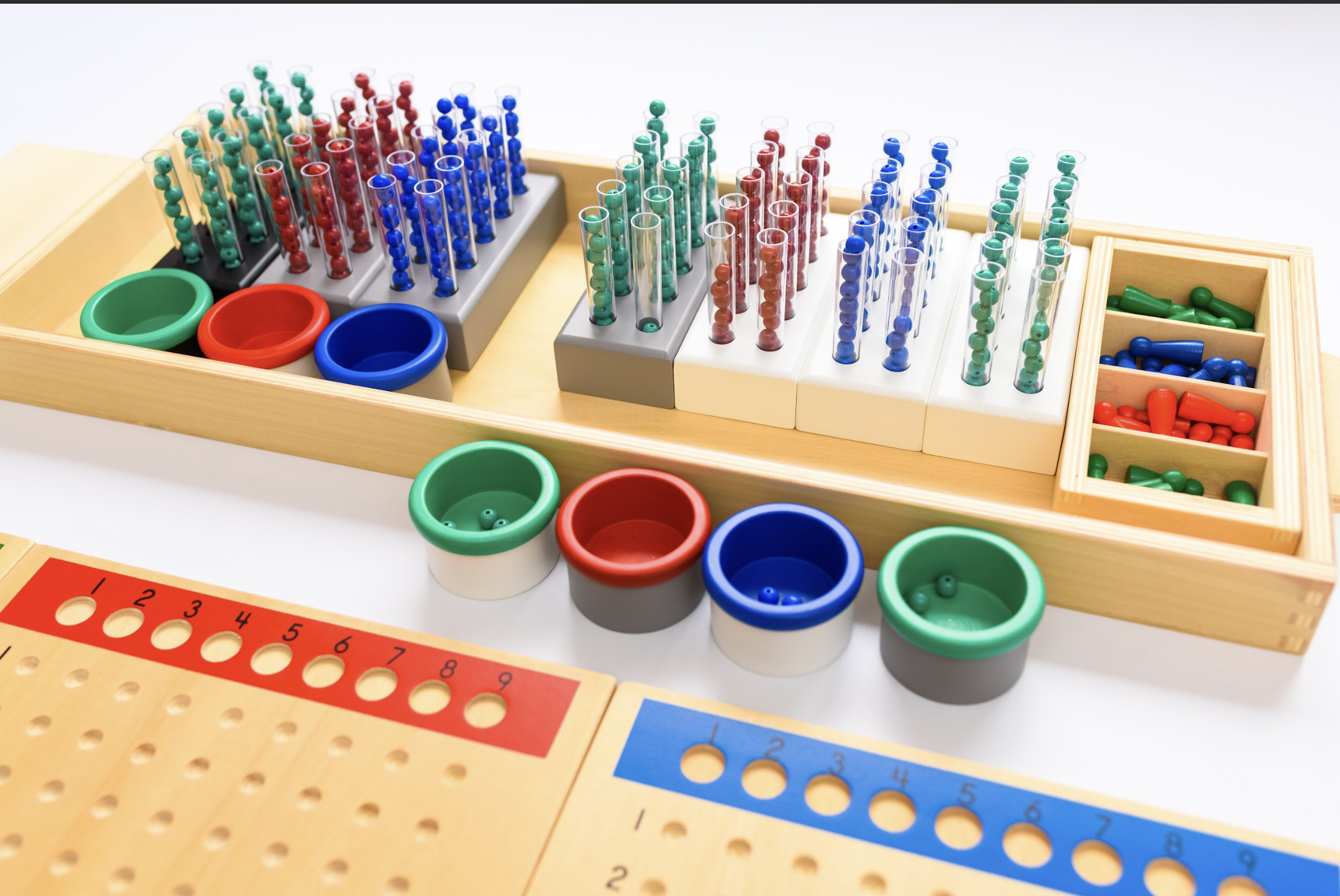
Elementary program
« Since it has been seen to be necessary to give so much to the child, let us give him a vision of the whole universe. The universe is an imposing reality, and an answer to all questions. We shall walk together on this path of life, for all things are a part of the universe, and are connected with each other to form one whole unity. »
The Cosmic Education
What sets Montessori apart in the Elementary years - ages 6 to 12 - is the individually paced curriculum that challenges children academically and safeguards their well-being and sense of self. Engaging as contributing members of a respectful community, they learn to question, think critically, and take responsibility for their own learning—skills that will support them in later education and in life.
As at all Montessori levels, the Elementary program is based on the belief that children learn best through movement and work with their hands, and provides cognitive, social, and emotional support to help them reach their full potential.
This includes addressing their needs as they enter a new period of development characterized by:
A transition from concrete to abstract thinking
A growing interest in socialization
Thinking and memory that is enhanced by creativity and imagination
An interest in fairness, social justice, and compassion
-
Staff: 1 AMI-trained teacher guide + 1 Assistant.
-
Ratio: 1:15 (teacher:child)

Enroll Today!
Spots now available for next academic year.
Academic Year Information
School Day:
Arrival/Car Drop-off Line: 9AM (Arriving after 9:30AM is marked as late).
Extended-Care:
Morning-care:7:30-9AM Open play at the Multi-purpose room
Extended-Care: 4-5:30PM Open play at the Multi-purpose room
Additional Notes:
EXCLUSIVE : Francophone program available
Elementary Admission for children joining from another school has its own process. Review Admission Process Here.
Children with no prior Montessori experience and who are in 2nd - 4th grade will have an interview with the Elementary guide prior to being accepted.
Snacks are provided by the school. Lunch comes from home. All lunch items and snacks must be nut-free. Parents will be alerted if there are any additional life-threatening allergies.
The Elementary schedule may be altered to accommodate going-outs (field-trips) that are an essential part of the Montessori Elementary experience.
Learning at the Elementary Level
The Elementary program initially serves Lower Elementary students ages 6 through 9 before expanding to include 12-year-old students. It is designed for both subject matter and interdisciplinary learning in math, language, biology, physical and cultural geography, history, geometry, art, and music. Scaffolded lessons are shared in small groups throughout morning and afternoon work cycles; between these cycles of activity, students participate in and lead a whole-group classroom meeting and engage in outdoor play and lunch. This program offers numerous opportunities for repetition and choice-making, as well as goal-setting. After receiving lessons, students will be able to repeat the lesson, explore extensions of the lessons, and develop special projects that merge their interests.
Student progress is measured and shared through students’ independent work journals and portfolios; teacher record-keeping and reports; student-teacher conferences; and parent-teacher conferences.
The Elementary curriculum contains the following areas of learning:
Practical Life
Within the Elementary program, the Practical Life curriculum expands from the foundation laid in Early Childhood. Practical Life at the Elementary level shifts from a focus on self-care and fine motor skills, to skills that help children connect with their interests in the outside world, organize their time, and take part in their community.
While self-care and appropriate social interactions continue to be supported, lessons that teach responsibility are the focus. Use of tools, such as work plans, to support organization and time management skills, are incorporated into the daily routine.
Teachers and students often work together to post reminders about assignments, projects, and ideas. Using these, children make independent work choices, prioritize activities, and meet deadlines.
Math
The ideas of number concepts, place value, numerals, and related quantities are reinforced and expanded upon within the Elementary program. Newfound purposes for familiar math materials provide children with the means to consider number concepts, mathematical operations, and more complex functions, helping to expand advanced mathematical knowledge and understanding.
Cultural Studies
Cultural studies are interdisciplinary and integrate zoology, botany, geography, geology, physical and life sciences, and anthropology. Through these lessons, children explore the interconnectedness of all living things. Additionally, in-depth studies of history, physical and political world geography, civics, economics, peace and justice, the arts, world language, and physical education are introduced.
Science and Social Studies
Interdisciplinary and integrated studies of geology, geography, physical and life sciences, anthropology, and history are built around “Great Lessons”, a series of dramatic stories that explore the origins of the universe, our planet, and the continuous development of human advancement. The laws of physics and chemistry reveal the interdependency of all living things. Beginning with a study of civilization, students explore the contributions of history and what it means to be a responsible citizen and to seek ways to make the world a better, more peaceful place.
Language
Reading and writing are integral to all subjects in Montessori Elementary, as children express their interests and satisfy their curiosity. Students master conventions with thorough studies of grammar, spelling, and mechanics. They produce final copies with careful penmanship and keyboarding. They read, analyze, think critically, and compare and contrast literature to support personal opinion and perspective. Using these reading and writing skills, they present ideas through formal and informal presentations.








